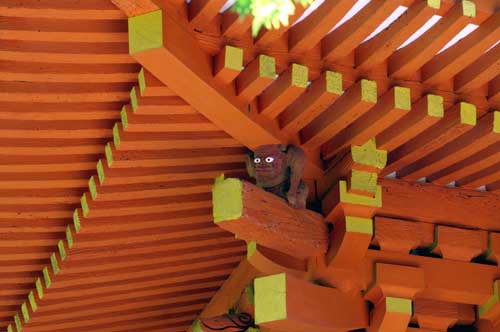One of the more interesting paradoxes about Japan is the way around 70% of people here will insist they don’t belong to any religion, yes nearly all households have a 仏壇 butsudan or Buddhist altar, essentially a miniature Ark of the Covenant for keeping in touch with one’s dead ancestors. Yes, Buddhism does form the core of Japanese spirituality and culture, and many common elements of Japanese society have their origin in Buddhism, although it’s not easy to see it today. Before eating, Japanese always say 頂きます itadakimasu, which is a very polite way of saying “I receive this,” a Buddhist phrase which is essentially thanking the animal that died so you could eat its meat. In the final days of December Japanese will do 大掃除 oh-souji or “big cleaning,” making sure their house is cleaned from top to bottom so they can enter the new year with a clean plate, and sure enough, this tradition evolved from the custom of cleaning the local Buddhist temple for New Year’s. Finally, the Japanese word for a contrarian who doesn’t like popular things or who goes out of his way to appear aloof around others is あまのじゃく amanojaku, and it turns out this name comes from a Buddhist deity who is basically a devil known for finding out what people are most interested in then tempting with it, for his own mischievous enjoyment.

An example of Amanojaku, waiting to temp passers-by with evil.















